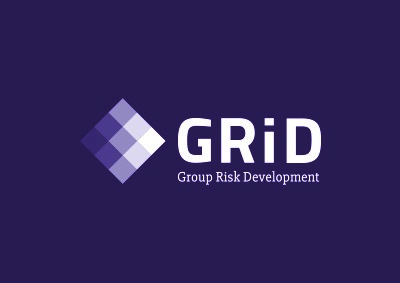Press release 18 June 2019.
Employers are underestimating the likelihood of a serious issue affecting their staff in the next twelve months, according to new research* undertaken by GRiD, the industry body for the group risk protection sector.
For example, the figures show that despite nearly four in five (78 per cent) HR professionals at larger employers having supported a member of staff at their current workplace through bereavement, their prediction of needing to do the same in the forthcoming twelve months is lower at 65 per cent.
Similarly, many HRs at larger companies (76%) have dealt with an employee being absent for six months or longer, but the perceived likelihood of doing this again in the next twelve months is just 60 per cent, 16 percentage points lower.
Further gaps in perception versus reality exist when HRs considered dealing with staff with mental health problems; dealing with staff who have been diagnosed with a serious illness such as cancer or stroke; and also in dealing with the death of an employee.
Likelihood of a serious issue happening
Regardless of whether an employer has had to deal with an issue previously, statistics demonstrate the actual likelihood of employees being affected by serious issues.
Macmillan’s figures show that 125,000** people of working age are diagnosed with cancer every year; Mind’s figures show 1 in 4*** people will experience a mental health problem each year; and ONS data reveals that 16% of people who died in 2017 were of working age****.
Katharine Moxham, spokesperson for Group Risk Development (GRiD) commented: “Statistics clearly show the likelihood of employees being affected by serious issues. Furthermore, employers need to realise that just because they’ve dealt with a serious incident with one employee, it unfortunately does not mean that they are in some way immune from it happening again.
“Indeed, larger organisations, and those with a specific demographic bias, may find themselves repeatedly dealing with a similar scenario for individuals within their workforce.”
GRiD also warns that each serious scenario should not be viewed in isolation, as clearly some are interlinked: for instance, a serious illness, long-term illness, or death of a loved one or colleague can lead to a mental health issue.
Katharine Moxham continued: “Of course true support for employees needs to go beyond that individual member of staff and extend to their family too. These serious issues have a wide impact on partners and dependants, and the individual member of staff will only be fully supported and get true peace of mind if they know their family is looked after as well.”
For as little as a quarter to one per cent of payroll, group risk products (which include employer-sponsored life assurance, income protection and critical illness) can give employers the means of throwing their staff a financial lifeline following a life-changing event. Importantly, they often also include a number of added-value services, such as access to Employee Assistance Programmes (EAP), bereavement support, help with probate, fast access to counselling, vocational rehabilitation and even support for improving health & wellbeing. This support can be highly valued by the employee, but can also benefit the business in supporting people returning to work.
- Ends –
*Research undertaken by Opinium on behalf of GRiD amongst 500 HR Decision makers between 4-18 March 2019.
|
Serious issue |
Actually dealt with for current workforce |
Perceived likelihood of happening in next 12 months |
Difference |
|
An employee dealing with bereavement |
78% |
65% |
13 percentage points |
|
An employee being absent long term (6 months+) because of ill health, disability and/or accident |
76% |
60% |
16 percentage points |
|
An employee dealing with mental ill health |
72% |
63% |
9 percentage points |
|
An employee being diagnosed with (or dealing with) a serious illness such as cancer, heart disease, or stroke |
64% |
59% |
5 percentage points |
|
An employee dying |
57% |
46% |
11 percentage points |
** https://www.macmillan.org.uk/about-us/what-we-do/how-we-work/work-and-cancer
**** https://www.ons.gov.uk/peoplepopulationandcommunity/birthsdeathsandmarriages/deaths/datasets/deathregistrationssummarytablesenglandandwalesdeathsbysingleyearofagetables (deaths of people aged 16-65 UK/ all deaths UK)
For further information please contact:
Sharon Mason
SMUK Marketing and PR
smason@smuk.org.uk
Mob: 07747 611773
Land: 01252 843350
Katharine Moxham
Spokesperson for GRiD
Katharine.moxham@grouprisk.org.uk
Mob: 07887 512508
Notes for editors
About GRiD
Group Risk Development (GRiD) is the industry body for the group risk protection sector, promoting the value to UK businesses of providing financial protection for their staff, enhancing their wellbeing and improving employee engagement. Our membership includes insurers, reinsurers and intermediaries who have a collective wealth of experience built over years of operating in the group risk protection market. Under the chairmanship of Steve Bridger (MD Group Protection, Corporate, Aviva UK Insurance) GRiD aims to promote group risk through a collective voice to Government, policymakers, stakeholders and employers.
GRiD works with government departments and regulators involved in legislation and regulation affecting group risk benefits, and with other organisations involved in the benefits and financial protection arenas. GRiD also seeks to enhance the industry’s standing by encouraging best practice and by participating in industry-wide initiatives such as the professional qualification in group risk managed jointly with the Chartered Insurance Institute.
GRiD’s media activity aims to generate a wider awareness and understanding of group risk products and their benefits for employers and employees.
GRiD’s dedicated spokesperson, Katharine Moxham, provides expert media comment on a full range of group risk issues.
Follow Katharine Moxham on Twitter @KMoxham


